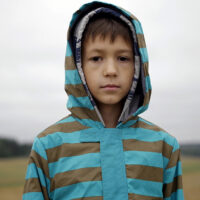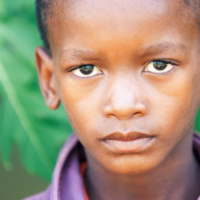Adverse Childhood Experiences (ACEs)
-

JCPP Editorial: Volume 63, Issue 09, September 2022
Editorial: Environmental conditions for growing healthy children by Joan L. Luby
Read more -

Adverse childhood experiences: what support do young people need?
Recent research funded by the National Institute for Health and Care Research (NIHR) identifies the types of support young people feel they need from services, and offers ways to support the mental health of children in care and those adopted from care.
Read more -

Psychological legacies of intergenerational trauma under South African apartheid: Prenatal stress predicts greater vulnerability to the psychological impacts of future stress exposure during late adolescence and early adulthood in Soweto, South Africa
Open Access paper from the JCPP – “We evaluate the intergenerational effects of prenatal stress experienced during apartheid on psychiatric morbidity among children at ages 17–18 and also assess the moderating effects of maternal age, social support, and past household adversity”. Andrew Wooyoung Kim (pic) et al.
Read more -

Understanding Early Trauma: The case for supporting parent-infant relationships
Understanding of adverse childhood experiences has grown in recent years. We now know more about how external circumstances cause psychological trauma in some children. When we understand early trauma – and the importance of early relationships – we are better able to prevent, and respond to, children’s mental health problems. [Please note that this is an external blog and may not reflect the views of ACAMH]
Read more -

Join our ACEs SIG and Forum
Anyone can now join our Adverse Childhood Experiences Special Interest Group, completely free! ACAMH members can log in to the website and participate in discussions on the SIG Forum. If you’re not an ACAMH member (yet!), you will need to register to use the Forum first.
Read more -
ACEs eNewsletters
We’ll be bringing you the latest news on ACEs, and then discussing these in the ACES SIG Forum, so do please register to use the ACEs Forum.
Read more -

ACEs – Adverse Childhood Experiences
Adverse Childhood Experiences (ACEs) are defined as situations that lead to an elevated risk of children and young people experiencing damaging impacts on their health and other social outcomes across the life course.
Read more -

Join our Adverse Childhood Experience Special Interest Group
We are inviting colleagues across the spectrum of Mental Health, Health, Social Care, and Education to join ACAMH’s Adverse Childhood Experience Special Interest Group, to become active members to contribute, question and share their understanding, and knowledge in this complex, growing and vital field of knowledge. You do not have to be an ACAMH Member to join the SIG or use the forum.
Read more -

Are ACE scores useful for identifying individuals at risk of health problems?
Clinics are increasingly screening for ACEs, but ACE scores may not tell us who will go on to develop poor health, explain Jessie R Baldwin (pic) and Andrea Danese.
Read more -

Child soldiers exposed to more violence and combat are at greater risk of mental health problems
Sadly, the involvement of children in armed conflict is increasing,1 and leads to a higher risk of developing mental health problems.
Read more